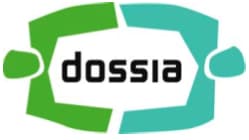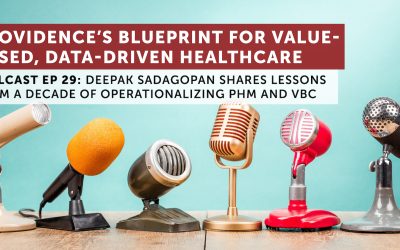
Dossia issued its own announcement (caution PDF), but again, thin on the details.
Today’s Health Data Management article does contain the most complete information I have found as they did talk directly to Dossia CEO, Colin Evans about the Wal-Mart roll-out.
Looking over this material, a few questions immediately come to mind:
Is the data in the PHR fully portable should I leave Wal-Mart? If yes, how would I go about exporting it to say a Google Health account?
If I leave Wal-Mart, can I still maintain my Dossia/Wal-Mart PHR? If yes, is there a cost to maintain the service?
What access will my employer have to the PHR? How is my privacy assured? What safeguards are in place?
Why only Wal-Mart, after all there are several more employers involved with Dossia? When will the other employer sponsors roll-out a Dossia/PHR service to their employees? What really puzzles me here is that Wal-Mart is rolling this out before Intel, one of the original founders (Wal-Mart came later). Intel has been a very strong and vocal proponent and actually has a number of Intel staffers on loan to Dossia, including Colin Evans. Logically, I would have predicted Intel to be the first to provide a Dossia service to their employees.
The big $100,000. question though is:
Can Dossia move fast enough to create a compelling platform that delivers sufficient value to the rest of the consortium members (and future members)?
Since its initial announcement in late 2006, it has taken Dossia nearly 2 years to get to this point and from what I have read, about the only difference between Dossia and a health plan-sponsored PHR is that with Dossia, employees get portability of their claims and medication data if they should switch heath plans. (Note: health plans claim they can now do this via the AHIP tech standards released last summer, but to date, none have actually done it.) Beyond that though, don’t see much else and this is after nearly two years of development. Granted they did have a false start with Omnimedix, but still this seems like an awfully long time to deliver such basic functionality.
Which leads to a broader question:
Will Dossia be sustainable?
Dossia was announced nearly a year before HealthVault. Back then, this was new, this was novel. Now, it looks like an also ran. With payers beginning to show a willingness to allow a member to export claims data to either HealthVault or Google Health, thereby giving them complete control over the record without potential for any employer interference, what added value does Dossia bring? Will an employee be willing to pay the small subscription fee for a PHR like CapMed, Medikeeper, Medem or NoMoreClipboard, which can be found on Google Health or HealthVault rather than going with the one their employer is offering that sits atop Dossia?
Right now, in its current version, Dossia isn’t offering much to differentiate itself in the market. That’s not to say they can’t, nor that they will not be sustainable. They have an excellent platform in Indivo Health, and they have some excellent personnel on-board, but they are going to have to hit the after-burners to be more competitive and provide a more compelling value proposition (offering/ecosystem) to their consortium members and ultimately consortium employees. If the value proposition is indeed compelling, only then will Dossia begin to create a self-sustaining, virtuous cycle that will lead to more consortium members and subsequently more software developers/vendor offerings within Dossia that further enrich the ecosystem.




John,
Well reasoned.
Let me first note that I’m a big supporter of this new ecosystem and Dossia.
That said, I see Dossia’s big challenge will be to build and attract useful and innovative applications.
If you’re an application developer or vendor, you’ll see that Google Health and MS HealVault are being offered to an available market of 300M Americans, and eventually to a world market up to 6B people. You’d see that Dossia has an employee membership base of about 10M. Where are you going to spend your time and energy?
Vince,
Thanks for the comments. As you well know, like you, I am a strong proponent of these 3 platform plays. Yes, there is some concern that developers may not look to Dossia first as a platform to develop for as the potential market, as you stated is small in comparison to Google and Microsoft.
But there are a few things that weigh in favor of Dossia.
It remains to be seen whether or not Google will really take this market seriously. They have BIG plans to capture the mobile search market with Android and the desktop with Chrome. These are what the best and brightest at Google are currently working on. In comparison to these two initiatives, Google Health is but a flea at the end of a very long tail.
Despite Microsoft’s more aggressive investment o resources it is currently relying heavily on the small vendors sitting atop of HealthVault to do the marketing and bring the users. This is a flawed strategy and one that many vendors/developers wll struggle with.
Dossia does potentially attract a core 10M employees right off the bat, or at least quickly in comparison to the two above. Also, Dossia is “Open Source” which definitely will be attractive to a certain sector of the development community. Thus, I do believe Dossia has the potential to develop an ecosystem, but as I stated in the post, they have to move a lot faster than they have demonstrated to date.